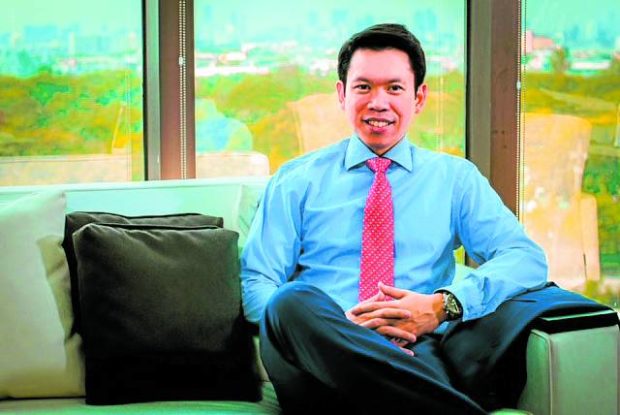PhilCare tackles mental health woes

Joseph Agustin Tanco—Contributed photo
PhilhealthCare Inc. (PhilCare) is blazing another trail.
The innovative health maintenance organization (HMO) that launched the first prepaid health card in the Philippines in 2010 is pioneering another product in response to a problem highlighted by the COVID-19 pandemic.
Joseph Agustin “Jaeger” Tanco, PhilCare president and CEO, says the pandemic made them realize the need to help people cope with mental health issues.
PhilCare has added to its customized prepaid cards one that will cover mental health services under its Mindscapes program. This may be availed of as a corporate add-on to existing medical benefits packages or as an individual investment.
Companies may avail of customizable and scalable programs to help promote and protect their employees’ mental wellness. Many of them already pay for the medical insurance of their employees and could simply add these benefits.
Individuals can also get MindCare or MindCare PLUS, both one-time prepaid telemedicine consultation products.
Catalyzed by pandemic
Although mental health was beginning to be recognized as a serious problem even before the pandemic, it moved toward center stage as COVID-19 health protocols restricted social interactions even among families. Fears of infection kept people isolated in their homes—unable to go to work, attend school, go to mass, socialize with friends and families, or do usual chores like grocery shopping.
PhilCare is confident that its new product provides the right response to the problem of more people suffering from mental health issues. New technology allows people to access the services of trained professionals, even from areas where there are not enough experts or none at all.
Mental health advocates have often lamented not just the shortage in actual number of Filipino mental health experts; the few that are out there are mostly based in urban areas, primarily Metro Manila. This leaves many out of the Philippines’ more than 100 million population without access to those experts.
Tanco says technology will help overcome this problem. And he does not anticipate any reluctance from clients in using technology.
Tech adoption
Because of the pandemic, PhilCare clients had to learn quickly about telemedicine and virtual consultations with their doctors. PhilCare launched DigiMed in 2019 to allow members to consult with doctors by phone for smarter, more convenient health-care services. Pickup was initially slow as Filipinos usually preferred face-to-face meetings.
But COVID-19 has put the adoption of the technology on high gear. Fears of catching the infection now make virtual consultation the preferred option of both doctor and patient.
Tanco sees that both doctors and clients are becoming more adept in the use of new technology and more comfortable holding their discussions through digital gadgets. He expects virtual doctor-patient meetings to grow even after the pandemic, but eventually sees the emergence of a hybrid system that enables both face-to-face and digital interactions.
The use of technology to deal with mental health concerns is seen as imperative given the small pool of local mental health experts and the reluctance of many people with mental health issues to be seen consulting a trained professional. As most mental health consultations involve simply discussions between doctor and patient, technology will allow these to be done as efficiently and effectively virtually as in face-to-face meetings.
PhilCare is also updating and upgrading its mobile phone applications to make virtual sessions between clients and health-care authorities more convenient and fruitful.
Tanco is optimistic that when the pandemic is finally conquered, the HMO industry in general will grow. People will have the cash to buy medical coverage. COVID-19 has underscored for many people the benefits of having insurance to cover health care expenses.
PhilCare expects to come up with more innovative products as it approaches its 40th year as an HMO company. —CONTRIBUTED
